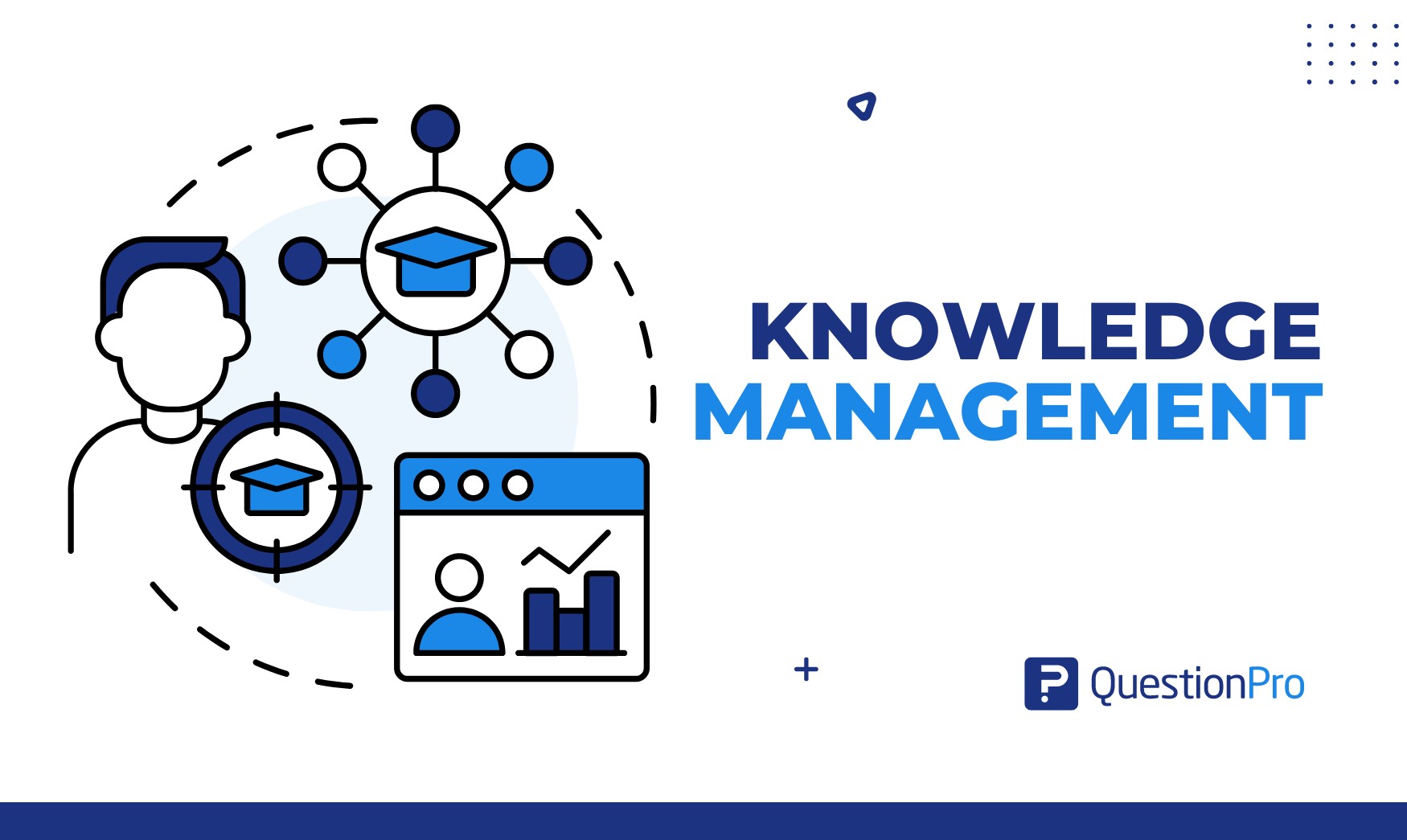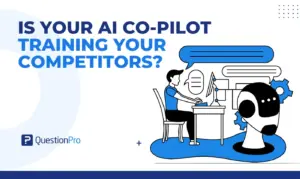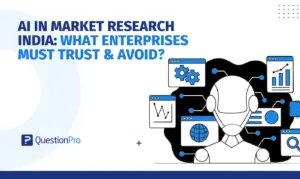
Knowledge is vital for any organization. Without effectively capturing and managing knowledge, it becomes challenging to make informed decisions, learn from past experiences, and innovate new products. While Knowledge Management isn’t new, it has evolved significantly with advancements in technology and information storage. These changes have influenced how KM initiatives are implemented and sustained over time.
Setting up a successful Knowledge Management system is a complex task that requires customization to fit the unique needs of your organization. It involves structuring the system effectively, anticipating and overcoming potential obstacles, and selecting the most suitable tools to support implementation.
What is Knowledge Management?
Knowledge Management (KM) is the systematic process you use to capture, develop, share, and effectively utilize knowledge within your organization. Implementing KM ensures that valuable information and insights are accessible to the right people at the right time. It enhances your organization’s efficiency, innovation, and decision-making capabilities.
By focusing on these aspects of KM, you can improve decision-making, create innovation, increase efficiency, and maintain agility in a competitive environment.
Importance of Knowledge Management
The knowledge Management process is crucial for your organization because it optimizes the use of collective knowledge, leading to various benefits that enhance overall performance and competitiveness. Here’s why KM is important for your organization:
It Increases Efficiency and Productivity
KM saved time by not searching through multiple systems for information scattered across:
- Chats
- Documents
- Emails
A centralized knowledge management software provides a reliable source of truth, reducing the need for repeated searches and interruptions. This significantly boosts operational efficiency, saves time for service and IT teams, and drives revenue.
KM Enables Informed Decision-Making
Transparent knowledge sharing ensures that everyone in the organization has access to the same information. This alignment empowers employees to make informed decisions collectively based on accurate and up-to-date data.
It Reduces Duplicate or Outdated Information
Centralizing knowledge prevents the risk of using outdated or unreliable information. A single source of truth ensures that all information is current, facilitating quicker adaptation and resilience to changes.
KM Prevents Company Silos
Effective knowledge management breaks down information silos by promoting transparency and communication across departments. This ensures that all teams have access to the necessary knowledge to collaborate effectively and work towards common company objectives.
Types of Knowledge Management
Let’s explore three fundamental types of Knowledge Management: Explicit, Tacit, and Implicit. Understanding these types will help you leverage your organizational knowledge more effectively and drive innovation and efficiency.
1. Explicit Knowledge Management
Explicit knowledge refers to tangible, codified information that can be easily documented, stored, and shared. This type of KM focuses on capturing and managing explicit knowledge assets such as manuals, procedures, databases, and reports. The primary goal is to make critical information readily accessible to employees. It enables them to make informed decisions and perform their tasks efficiently.
Benefits:
- Reduces search time for information and minimizes duplication of efforts.
- Ensures consistency in processes and compliance with organizational standards.
- Facilitates rapid onboarding of new employees and supports continuous improvement initiatives.
2. Tacit Knowledge Management
Tacit knowledge is personal, experiential knowledge that resides in individuals’ minds and is challenging to articulate or formalize. This type of KM focuses on capturing and sharing insights, expertise, and best practices that are deeply embedded in employees’ experiences and intuition. Techniques such as mentoring, storytelling, and collaborative platforms are essential for transferring tacit knowledge effectively across the organization.
Benefits:
- Encourages creative problem-solving and innovation.
- Enhances learning and development by sharing valuable expertise.
- Preserves critical knowledge that might otherwise be lost when employees leave.
3. Implicit Knowledge Management
Implicit knowledge refers to the knowledge that is embedded within organizational processes, routines, and culture but is not explicitly documented or articulated. This type of KM focuses on identifying and leveraging implicit knowledge to improve organizational performance and decision-making. It involves recognizing patterns, understanding organizational dynamics, and exploring collective intelligence to drive continuous improvement.
Benefits:
- Utilizes insights from organizational routines and practices to inform strategic decisions.
- Facilitates adaptive learning and organizational agility.
- Maintains and strengthens organizational culture and identity.
What is The Process of Knowledge Management?
Here, we will explore the complete Knowledge Management Strategy(KM), highlighting its critical steps and benefits for modern businesses.
1. Knowledge Discovery and Knowledge Creation
The process starts with identifying and creating new knowledge. This can occur through formal research, innovation initiatives, or even serendipitous discoveries during day-to-day operations. For example, a team might uncover a more efficient customer service approach based on ongoing feedback analysis.
2. Knowledge Capture
Once the right knowledge is generated, it needs to be captured in a structured manner. This knowledge management includes:
- Documenting insights
- Best practices
- Lessons learned and other valuable information.
Documenting knowledge ensures that it’s preserved for future reference and can be shared across the organization.
3. Knowledge Organization and Storage
Organizing and storing knowledge is crucial for easy access and retrieval. Modern knowledge management systems often use cloud-based platforms that allow secure storage and quick retrieval of information. Categorizing knowledge based on relevance, department, or project helps streamline access and ensures that the right people can find the right information when needed.
4. Encourage Knowledge Sharing
Sharing knowledge is where the real value of KM comes into play. Effective knowledge-sharing promotes collaboration, prevents duplication of efforts, and accelerates innovation. This step involves creating platforms, forums, or communities where employees can exchange ideas, discuss challenges, and learn from each other’s experiences.
5. Knowledge Application
The ultimate goal of knowledge management is to apply knowledge to improve decision-making and enhance organizational performance. This step involves using insights and information gathered through KM processes to solve problems, innovate new products or services, and optimize operational processes.
Knowledge Management Use Cases
Let’s explore several compelling use cases where Knowledge Management proves invaluable:
Risk Management
In industries with stringent regulatory requirements, Knowledge Management systems play a crucial role in ensuring compliance and mitigating risks. By centralizing policies, procedures, and regulatory guidelines, organizations can ensure that employees have access to up-to-date information. Management tools also facilitate audits and inspections by providing comprehensive documentation and audit trails, thereby minimizing compliance risks and potential penalties.
Customer Support Operations
Knowledge Management revolutionizes customer support by equipping agents with a comprehensive repository of solutions, troubleshooting guides, and case studies. By enabling quick access to relevant information, agents can resolve customer inquiries promptly.
It leads to higher first-call resolution rates and improved customer satisfaction. Additionally, KM systems facilitate continuous learning and skill development among support teams, ensuring they stay updated with the latest product knowledge and service updates.
Project Management
Knowledge Management supports project management by capturing lessons learned and best practices from past projects.
By documenting successful strategies, project timelines, and challenges faced, organizations can improve project planning and execution. Knowledge repositories enable project teams to access historical data, avoid past mistakes, and replicate successful outcomes, leading to more efficient project delivery and client satisfaction.
Innovation and R&D Collaboration
Knowledge Management is instrumental in driving innovation and building collaboration within Research and Development (R&D) teams. By sharing research findings, patents, and scientific insights across departments and global offices, organizations stimulate idea generation and accelerate product innovation.
A Knowledge Management platform facilitates cross-functional collaboration, enabling scientists, engineers, and designers to collaborate on new initiatives, prototype development, and market research, ultimately driving breakthrough innovations and market leadership.
Knowledge Management Best Practices
Here are some simple best practices for you to follow in knowledge management:
Adjust Your Organizational Structure
Consider how your company’s structure affects the flow of knowledge. Siloed teams make it harder to share insights. While there’s no one-size-fits-all approach, flatter, decentralized structures generally support better knowledge management. Look for barriers in your structure that might hinder knowledge flow and make changes accordingly.
Promote a Sharing Culture:
Create an environment where sharing knowledge is encouraged. Align your company’s beliefs and values with knowledge management efforts. Reward employees for sharing insights across teams. Creating informal “communities of practice” where experts collaborate and share knowledge can also enhance your KM efforts.
Develop a Knowledge Retention Strategy:
Preserve valuable knowledge within your organization. Identify critical knowledge, assess what might be at risk of being lost, and take steps to keep it accessible. Determine the best methods to capture, store, and make knowledge easily available to employees.
Use User-Friendly KM Systems and Support Adoption:
Implement easy-to-use systems that integrate smoothly into employees’ daily work. This increases company-wide acceptance and ongoing use. Gain support from leadership and appoint champions who can train employees and promote system usage effectively.
Seek and Incorporate Employee Feedback:
Involve employees in your KM initiatives from the beginning. Gather their feedback to improve system usability and relevance. Implement features like:
- Use it
- flag it
- fix it
- add it
It continuously enhances your knowledge base based on real-time user input.
How QuestionPro InsightHub Enhances Knowledge Management?
QuestionPro InsightHub serves as one of the robust knowledge management platforms, offering a range of features that increase knowledge sharing, collaboration, and retention within organizations. Here’s how InsightHub contributes to effective management:
1. Surveys and Polls
InsightHub allows users to create surveys and polls to gather valuable insights and feedback from employees or stakeholders. This data helps identify knowledge gaps, assess training needs, and gather opinions on relevant topics crucial for knowledge management strategies.
2. Discussion Forums
InsightHub provides a platform for hosting discussion forums where employees can ask questions, share expertise, and exchange knowledge informally. These forums are instrumental in capturing tacit knowledge and promoting continuous learning across the organization.
3. Content Sharing
Users can easily share documents, articles, and knowledge resources through InsightHub. This feature ensures that employees have access to relevant information, facilitating ongoing learning and professional development.
4. Data Analysis
InsightHub offers advanced data analysis capabilities, including robust analytics and reporting tools. Organizations can leverage these features to uncover trends, patterns, and actionable insights from collected data, empowering informed decision-making in knowledge management initiatives.
5. Collaboration Tools
With team workspaces, project management features, and real-time chat options, InsightHub enhances collaboration among employees working on management projects. These tools streamline communication and project coordination, building a knowledge management team.
6. Feedback Mechanisms
InsightHub enables organizations to gather feedback from employees on knowledge management processes, tools, and initiatives. This feedback loop helps refine and improve the effectiveness of the knowledge management system over time, ensuring alignment with organizational goals.
7. Integration Capabilities
InsightHub seamlessly integrates with other essential systems and tools used within organizations, such as learning management systems (LMS), CRM software, and ERP systems. This integration ensures smooth data flow across platforms, enhancing the overall efficiency and effectiveness of the knowledge management ecosystem.
Conclusion
Knowledge management helps organizations use their knowledge effectively. By organizing and sharing information in a structured way, businesses can work better, come up with new ideas, and grow steadily.
As technology changes, knowledge management becomes even more important for businesses to succeed. It’s essential for companies to focus on and invest in good strategies for managing knowledge well.
By exploring QuestionPro InsightHub, organizations can strengthen their knowledge management practices and promote collaborative learning. This helps build continuous improvement across all levels of the organization. Contact QuestionPro for further information!







